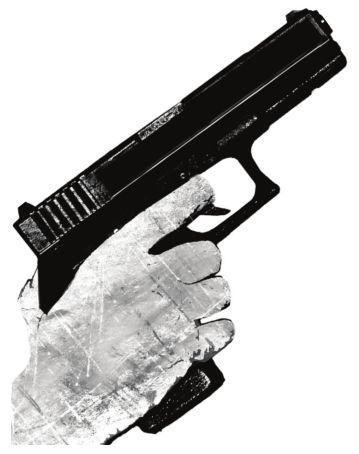City will pay man shot by police 
The city of Springfield will pay $50,000 to a man shot by police more than seven years ago under a settlement approved Tuesday by the city council.
The case started when James Wells stepped onto his back porch to ring in the new year in 2008 with gunfire. He didn’t know that Springfield police officers had positioned themselves near his home on South 16 th Street in hopes of catching felons firing guns to celebrate the new year, as was common on the city’s east side.
“New Year’s Eve offers a unique opportunity where a lot of people are more openly outdoors with guns, felons and gang members, than there are typically,” Sgt. Matthew Fricke testified in a deposition. “They step outside where they can be viewed. So, I saw it as an opportunity to…catch a dangerous person with a gun.”
So it was that officers, some toting assault rifles, scouted for likely targets as midnight approached, then got out of their cars and prowled near homes where they thought bad guys might be celebrating. In a deposition, Wells, who was a lawful gun owner, testified that hundreds of shots were ringing out when he turned off his porch light so that no one could see him as he fired into the air. Officer Jeff Coker, who shot Wells three times, said that he unholstered his weapon as he headed toward the sound of gunshots coming from Wells’ home.
Coker in a deposition said that he ordered Wells to drop his gun several times but Wells continued firing into the air. Finally, Coker testified, Wells began lowering the gun.
“I am completely focused on that weapon, nothing else,” Coker said. “Like I stated before, a nuclear bomb could have gone off…and I wouldn’t have even recognized it. … As he comes down at an angle, he lowers it (the gun) and swings. And that weapon comes to my path, exactly where I was standing.”
At that point, Coker testified, he made a hard choice.
“When it (the gun) crossed my path, that’s when I made a split-second decision to defend my life,” Coker said. “I don’t know if he is trying to kill me or if he is just turning around to go in that house. I don’t know. I can’t make that judgment. I have to assume I have to defend my life. That’s the decision I made, to defend my life at all costs. That’s why I pulled the trigger.”
At least one bystander said that police warned Wells several times to drop the gun before Coker opened fire.
“I heard him (an officer) say, ‘Put the gun down,’” Anthony Hardin, a neighbor, said during a deposition. “And they said it, man, they said it a lot of times. I mean, they really was trying to get this man to listen to them.”
Contrary to Coker’s account, Wells said that he still had his gun pointed at the sky when the officer opened fire. His attorneys suggested during depositions that their client may not have been able to hear police shouts above the sound of his own gun firing.
Wells’ lawyers also claimed that the police department invited the shooting and created an unsafe environment by sending officers on foot patrol on New Year’s Eve in hopes of catching felons with guns, and so both the city and Coker should be held liable. U.S. District Court Judge Colin S. Bruce, however, rejected that argument a year ago.
The lawsuit nearly died in 2011, when U.S.
District Court Judge Sue Myerscough dismissed the case, noting that Wells had pleaded guilty to reckless conduct, a misdemeanor, in Sangamon County Circuit Court and was placed on probation for two years. The judge in state court read the allegations to Wells, including the contention by prosecutors that Wells had fired into the air and then pointed a gun at Coker, before Wells entered his guilty plea. That, Myerscough decided, precluded Wells from claiming in his lawsuit that he had not pointed a gun at the officer, which was the crux of the case. But the Seventh Circuit Court of Appeals reversed Myerscough’s decision in 2013, and the case survived.
Sara Mayo, an attorney for Wells, could not be reached for comment. Daniel Noll, a lawyer for the city, said that the decision to settle was a matter of economics.
“We were very confident in our position,” Noll said. “We do not believe the plaintiff or his attorneys have made any money in litigating this case. … It was our belief that continuing to litigate this case would cost more than the settlement that will be presented to the judge.”
Contact Bruce Rushton at [email protected].